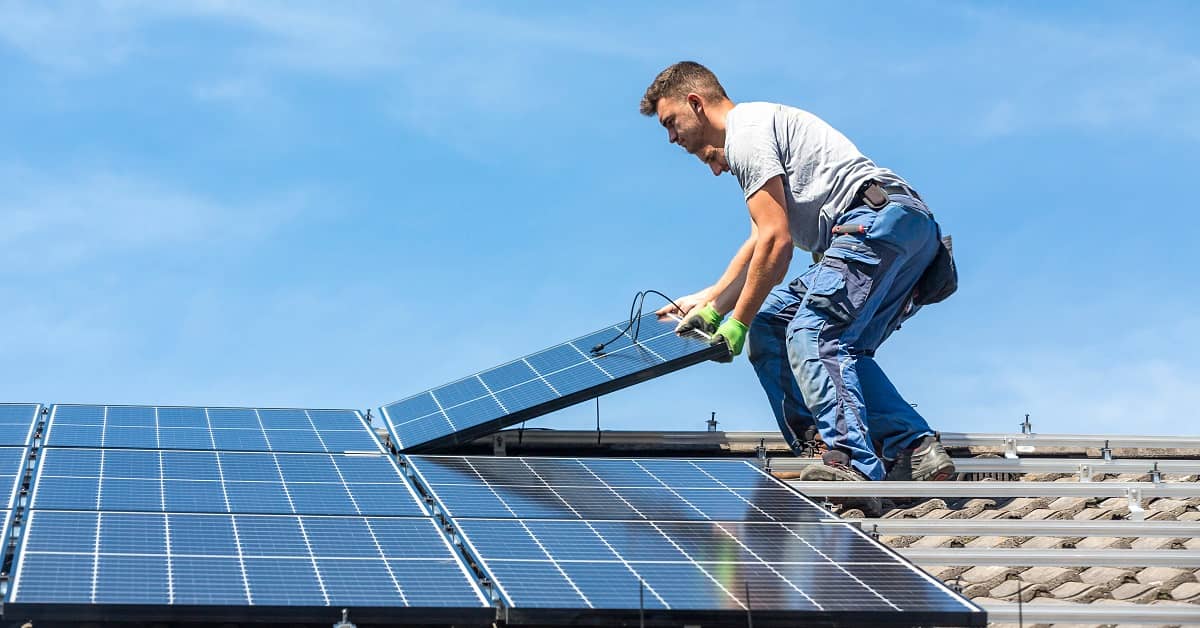
What Are My Solar Panel Options?
The decision to invest in solar energy for your home comes with a number of additional choices. From determining your solar power output needs and goals to finding the right solar company, there is a lot to consider when you go solar.
Choosing the best solar panels is a top priority for many homeowners. High-quality solar panels are the foundation of a reliable, efficient home energy system.
It can be difficult to navigate the range of solar panel options on your own. At REenergizeCO, our Colorado solar energy company is committed to helping homeowners throughout the Front Range find the right solutions for lower utility bills and greater energy independence.
Keep reading for more information on the available types and brands of solar panels, as well as your options for installation:
Types of Solar Panels
The technology behind solar power has grown tremendously over the years. What was formerly a niche product for the wealthy is now affordable and effective for the majority of homeowners – especially in a sunny and supportive state like Colorado.
Generally, homeowners have three options to choose from for their residential solar panel system:
1. Monocrystalline Solar Panels
Monocrystalline solar panels are the most common type of solar panel installed on homes today. The panel is constructed of a single pane of silicon crystal.
Efficiency is the major factor that sets monocrystalline solar panels apart from other options. The high performance leads to unparalleled energy savings, resulting in a high return on investment for the system as a whole.
Read More: How Much Are Solar Panels in Colorado?
2. Polycrystalline Solar Panels
As with monocrystalline technology, polycrystalline solar panels are also made of silicon crystal. However, the key difference is that polycrystalline solar panels are composed of multiple pieces of silicon crystals.
Polycrystalline solar panels tend to be less efficient than their monocrystalline counterparts. As a result, the monthly energy savings and overall return on the system tend to be smaller as well.
Today, polycrystalline solar panels are considered outdated and inferior to monocrystalline technology. Most solar manufacturers don’t make polycrystalline solar panels, and few solar energy companies carry them anymore.
3. Thin-Film Solar Panels
Instead of silicon crystal, thin-film solar panels may be constructed from a variety of photovoltaic materials. Commercial and utility installations are the most common sites for thin-film panels due to their light, flexible design.
However, thin-film solar panels are the least efficient of the three major kinds of solar panels available to homeowners. As a result, their use in residential installations is limited.
Solar Panel Brands
Many different companies manufacture solar panels. Although this has led to greater choice and lower prices for consumers, it can be difficult to know which brand is the best.
Some of the most important things to consider when researching who makes the best solar panel include:
- Performance: Are the brand’s solar panels efficient and reliable?
- Reputation: What do consumers and experts say about the brand and its solar technology?
- Price: Do the solar panels fit your budget?
- Value: Do the solar panels have a good return on investment?
- Warranty/guarantee: Does the brand stand by its products?
For all of these reasons, REenergizeCO is proud to carry LG solar panels. These A-rated panels have a 25-year warranty on products, performance, and labor. At year 25, LG panels are guaranteed to produce 90.8 percent of the listed wattage – a degradation rate of less than 10 percent.
LG solar panels are also American-made. Our solar energy company buys panels directly from the LG plant in Huntsville, Alabama.
What Are My Solar Panel System Options?
In addition to finding the best type and brand of solar panel, it is important to decide which installation is right for your household. The major types of solar energy systems are:
1. Solar Panel System Tied to the Grid
This is the “standard” installation for residential solar energy systems. During the day, your home is powered by the energy generated from the solar panels. At night, you draw power from the grid.
Homeowners who install solar panels and stay connected to the grid can benefit from net metering programs offered by the local utility. With net metering, your bill is credited for any surplus power contributed to the grid by your solar energy system.
2. Grid-Tied Solar Energy System with Battery Storage
More and more homeowners are installing solar energy systems that are connected to the grid but with a battery backup. There are numerous advantages to installing a battery as part of your system, one of the most notable of which is greater energy independence.
Read More: Managing Home Energy with a Solar Battery
Battery storage enables you to draw on your own store of energy when the sun sets. In the event of a power outage, having a solar battery will also spare your home from the blackout.
In effect, a solar energy system with battery backup (also known as “solar-plus-storage”) maximizes the value of your system by allowing you to rely on solar power day, night, and in the event of an emergency. Grid-tied solar-plus-storage systems also qualify for net metering and additional rebates and incentives from local utilities.
3. Off-Grid Solar Energy
Homeowners who are looking for total energy independence may consider relying entirely on a solar energy system to power their homes. While certainly not impossible (especially with solar battery storage), precise calculations are essential for determining your home energy needs and how much your solar panels must produce.
Off-grid solar panel systems do not qualify for incentives from local utilities. These systems also tend to be more expensive because the output has to be higher than that of a home with solar power that stays connected to the power grid.
Find the Right Solar Panel Options for You
Many homeowners who are excited about going solar feel overwhelmed by decisions about solar panels and systems for powering their homes. If you are facing this situation, contact REenergizeCO to learn how we can help.
Our Colorado solar energy company has the experience and knowledge to help you make informed decisions. We use high-quality materials, customize the design of the system to meet your needs, perform the installation with care and efficiency, and assist you with applying for rebates.
To start exploring your options for solar panels and solar energy systems, please call (303) 227-1000 for service in Denver or (970) 323-3191 for service in Fort Collins. REenergizeCO serves homeowners throughout the Colorado Front Range.
"*" indicates required fields


